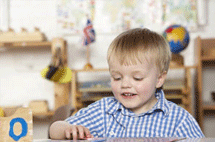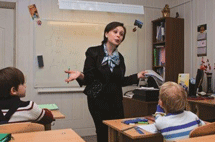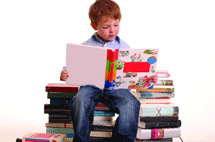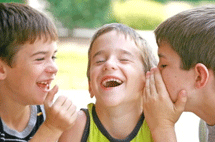Искусство слова
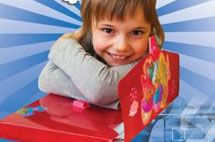
Программа «Искусство слова» призвана помочь младшему школьнику открыть удивительный мир слов, задуматься над их значением, научиться четко и ясно выражать свои мысли, используя интонационные и художественно-выразительные средства, составлять разные типы планов, делать краткие и полные пересказы художественных и научно-популярных текстов.
Цели занятий:
- Обогащение активного словарного запаса;
- Развитие выразительности и образности речи;
- Развитие навыков связного и логичного выражения мыслей в устной форме;
- Развитие навыка анализа структуры текста;
- Развитие навыков пересказа текстов различных типов.
Особенности методики:
- Комплексная и планомерная (во время каждого занятия) проработка всех аспектов, влияющих на формирование грамотной и богатой устной речи;
- Процесс обучения построен по принципу: «от простого к сложному»;
- Использование одновременных художественных и научно-популярных текстов;
- Использование как стандартных школьных, так и занимательных дидактических материалов;
- Активное участие всех учеников в ходе занятий;
- Индивидуальный подход к каждому с применением в процессе обучения отлично зарекомендовавших себя логопедических методик.
Результаты обучения:
- Грамотное изложение ребенком своих мыслей в устной и письменной форме;
- Умение интонационно расставлять акценты в своей речи;
- Расширение словарного запаса;
- Умение быстро и грамотно формулировать ответы на вопросы;
- Снятие страха перед устным ответом в школе;
- Приобретение навыков составления текстов - описания, рассуждения, повествования;
- Приобретение базовых навыков, необходимых для написания изложения и сочинения.
Обучение по программе:
- Занятия проводятся в мини-группах;
- Зачисление в группы производится по результатам первичного собеседования, основная цель которого заключается в выявлении уровня беглого, плавного, безошибочного и выразительного чтения.
Режим занятий:
- Стандартный (в течение учебного года):
- Объем стандартной программы - 33,75 академических часов.
- Срок реализации программы - 15 учебных недель.
- Режим занятий: 1 раз в неделю: 15 занятий по 1,5 астрономических часа.
- Каникулярный:
- Объем каникулярной программы - 24 академических часа.
- Срок реализации программы - 2 недели.
- Режим занятий:
- в любые школьные каникулы: 8 ежедневных занятий (включая субботу и воскресенье) по 2 астрономических часа;
- летний интенсив: 10 ежедневных занятий (кроме субботы и воскресенья) по 1,5 астрономических часа.
- The main condition for the development of speech in children of preschool age - adequate communication with adults, and reading books, socializing with peers. It is important for emotional and intellectual development of the preschool child, because it improved in the practical direction and becomes an instrument of thought.
- It - is the realization of human thought, expressed in the form of words, phrases and sentences. Human communication, expression of emotions, the impact on others - all of these functions are performed on the basis of speech.
Developmental speech classes acquire specific action-oriented, and focused on what to teach students reading meaningful, consistent expression of their thoughts aloud, and their ability to write competently. At the same time younger students receive their age perception available starting knowledge of the native language, literature, enrich their speech, develop attention and interest in reading books.
Important indicators are intelligent schoolboy level imagery and consistency in the construction of his speech, and therefore timely to engage in the development of speech of younger schoolboys is not what is important, and perhaps even a must for a successful education of students in the later stages of maturation. Teach children correctly and beautifully express their thoughts, both orally and in writing - a daunting task that requires a comprehensive approach.
Development of oral and written speech of pupils takes place in unity with the development of their ability to think, the formation of the student as a person: his upbringing civil qualities, the development of cognitive interests, activity, self-reliance, hard work, responsibility for the work, the ability to overcome difficulties.
Second, after the pre-school age, an important step in mastering the speech falls on the school period. By the age of seven, children tend to have basic means of verbal communication on the basis of previously obtained syntactic and morphological knowledge - is for the most part at a conversational level, of course. Simply put, children develop speech activity through the perception and speaking. It is therefore necessary to create favorable conditions for speech activity of students, for communication, for explanations of the emotions and thoughts.
Thank you for your request, our manager will contact you
